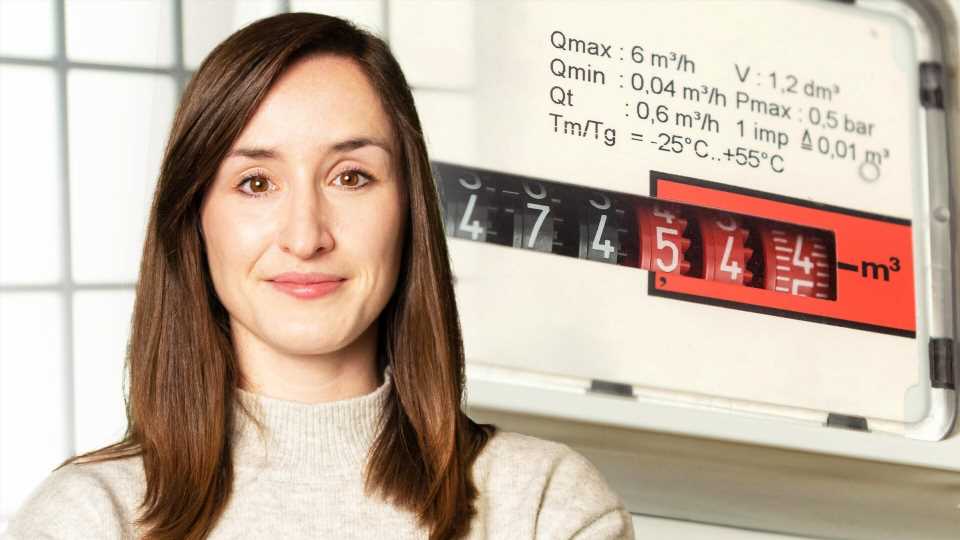HOUSEHOLDS are being urged to do a simple check that could help them to save money on their energy bills.
The amount that an average household is expected to pay for its energy bills will fall by around £151 per year from October 1.

Ofgem’s next price cap, which was announced on Friday, will drop to around £1,923.
But is not a cap on the overall amount people will pay for their energy.
Instead it caps the amount that they pay per kilowatt hour, or unit, of gas and electricity. The £1,923 figure is calculated based on what Ofgem thinks an average household will use.
That means you may pay more or less, depending on your usage.
READ MORE IN MONEY

Millions of households can apply for energy bill support worth £600 in weeks

Ofgem issues urgent energy bill warning as millions could miss out on price drop
Around 29million households are on standard variable tariffs that are subject to the price cap.
It's vital you do a meter reading before the bill hike or risk paying more for your energy bill, Uswitch energy expert Natalie Mathie told The Sun.
That's because taking a meter reading before the new price cap comes into force will help you to be billed accurately.
Natalie said: “Despite the good news that energy rates will drop slightly from October, bills are still high, so it is important that consumers who don’t have a smart meter send regular readings to their energy supplier to ensure their payments are accurate."
Most read in Money

Man who won £3m Omaze mansion 'demands payout'… as most winners sell prizes

High Street chain with 450 branches to abruptly close store for good within days

'Sad times' as major department store set to close another branch within hours

I tested supermarket prawn sarnies – winner was special own brand version
But if you're on a prepayment meter then you don't need to worry about this as you pay for your usage upfront.
She explains exactly when to do a meter reading – and why you should do one.
When should you take a meter reading?
You should take your meter reading on or around October 1, Natalie said.
“This is when the next energy price cap comes into effect, and will change the price that households on standard variable tariffs pay for their energy over the next three months," Natalie said.
“Submitting a reading on or near October 1 will ensure you’re charged the right amount for the gas and electricity you’ve used this summer, and won’t be overcharged for energy used from the start of October."
There are some exceptions to this, she added.
“If you have a smart meter, your readings will be sent to your supplier automatically, and if you are already on a fixed deal the price you pay for energy will not change on October 1," she said.
Fixed deals are where you agree to a set price for a certain period of time and these tariffs are not subject to the price cap.
But Natalie added that it's a good idea of households to submit meter readings every month to improve the accuracy of their bills, regardless of the tariff.
She added: "It is always worth remembering that the price you pay is ultimately determined by how much energy you use – the more you use, the more you’ll pay.”
How to avoid paying more
It's important to take a picture of your meter readings and send the readings to your supplier.
This is so you can cross reference your bills with your usage – and if you spot anything that doesn't look right, you can contact your supplier to question it
If you think you're not using as much energy as what you're being charged for, then you should get in touch with your provider and send them the pictures you have to try and get a better rate.
You might also want to check whether your meter is working properly.
Although Citizens Advice says meter faults are rare, they can happen – and it could be causing a billing mistake.
If you've sent a meter reading in and notice your bill is much higher than your meter reading but your supplier won't fix it, then you should take your complaint to the Energy Ombudsman.
They handle issues between customers and suppliers and will look at your case and see if they can help you deal with the complaint.
It helps resolve issues on billing, installations and delays, loss of service, customer service, and switching suppliers.
If they help take your complaint on, they can only help back bill you for 12 months.
That means you won't be able to get help getting money back before this.
How can I lower my energy bills?
Switching to paying your energy bills by direct debit is one of the simplest ways to bring down your charges.
Millions of households who pay for their energy bill via credit, debit card or cheque pay more for their energy than those who pay via direct debit.
The Sun recently revealed that this can be up to £140 per year more than direct debit households.
Customers of several firms have a choice over how their direct debits are set up:
- Fixed direct debits
- Variable direct debits
With a fixed direct debit, you'll pay a fixed amount every month. Your energy company will work out the cost of your energy for the year ahead and divide this into equal payments.
Most energy firms will use the average amount of gas and electricity used in previous years to calculate your monthly instalments.
With a fixed direct debit you can spread the cost of your energy use without any surprises.
Read More on The Sun

My son, 7, was electrocuted to death at a pub – £10 could have saved his life

Chloe Ferry stuns in tiny skin-coloured bikini on Marbella holiday
With a variable direct debit, you can choose to pay a varying amount every month or every quarter, depending on the energy you use.
You'll pay for the energy you use, this means you'll likely pay more in the winter and less in the summer.
Do you have a money problem that needs sorting? Get in touch by emailing [email protected].
You can also join our new Sun Money Facebook group to share stories and tips and engage with the consumer team and other group members.
Source: Read Full Article


